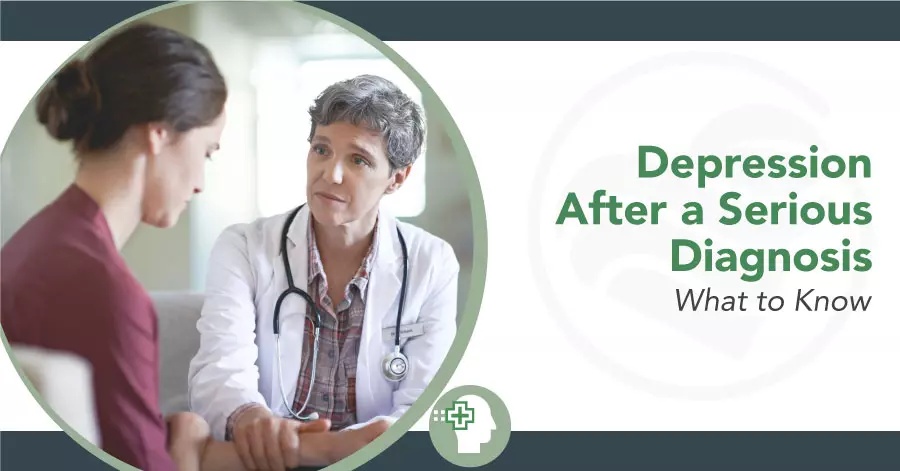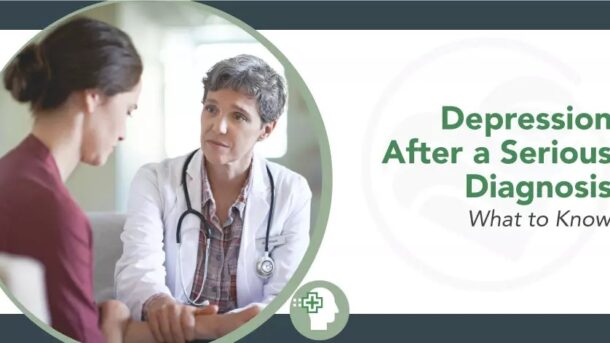
Your overall wellness depends on many factors. These include your physical health, your hopes, goals, and dreams. Feeling like your whole life lies ahead with unlimited potential is powerful. But a serious illness diagnosis can shatter this instantly. Suddenly, limiting factors affect your life’s length or quality. This drastic change often triggers depression.
Stage four cancer and other terminal illnesses frequently cause this depression. However, life-altering diagnoses like diabetes, heart disease, or HIV also have profound impacts. Even though treatable, these conditions dramatically alter a person’s view of the future.
This piece explores the emotional process following life-changing health news. We’ll examine why depression is common and share tips for staying positive and in control of your mental health after a serious diagnosis.
How Do We React to Bad News?
Sudden bad news, like a serious illness, often strikes unexpectedly. It leaves individuals and loved ones mentally and emotionally unprepared, especially concerning health. Let’s explore common reactions to receiving a severe or chronic disease diagnosis.
Most people report immediate numbness and disbelief upon hearing a cancer or serious illness diagnosis. Families often share this reaction. People often cope by believing serious illnesses only happen to others, never to themselves. This mindset explains why shock is the most common reaction when the news hits home.
People process these feelings differently. After shock and disbelief fade, uncertainty often follows. People worry about the future, the condition itself, or crucial treatment decisions.
Eventually, this “new normal” loses its novelty. Some people accept their life’s new direction. Others become numb and detached. These feelings create a significant risk. The sick person, their family, or close friends can easily slip into serious mental health conditions like depression.
Understanding Depression After a Diagnosis
Depression after a cancer diagnosis is very common. MD Anderson Cancer Center reports that 15-25% of people diagnosed with cancer experience depression. Considering diagnoses also heavily impact families and friends, mental health becomes highly volatile after such news.
This link likely exists for any major diagnosis. Depression and degenerative diseases are strongly connected. Conditions like multiple sclerosis, Alzheimer’s, and Parkinson’s disease often act as catalysts for mental illness too.
Depression after a diagnosis typically manifests in two ways:
- Major Depression: This is acute depression, occurring in shorter bursts. Trauma, grief, or excessive stress usually triggers it. Persistent sadness characterizes major depression.
- Clinical Depression: This shares many effects with major depression but is more chronic. People can experience clinical depression for years or large parts of their lives.
Those diagnosed with a terminal illness often experience major depression during initial grief. However, the danger lies in this acute state gradually turning into chronic, clinical depression as they struggle with their changed health reality.
Even patients avoiding immediate mental health issues after a severe diagnosis remain at risk. “End of life depression” describes intense sadness as someone succumbs to their illness. This overwhelming sadness can affect both the patient and their caregivers.
Tips to Avoid Letting a Diagnosis Control Your Life
We’ve discussed grief strategies before, but responding to a grim diagnosis is a unique emotional process.
Receiving a terminal or severe health diagnosis for yourself or a loved one makes obsession easy. Remember, a diagnosis alone doesn’t signify the end of existence.
A common saying in support groups offers wisdom: “Accept the diagnosis. Reject the prognosis.” This means someone’s life may change fundamentally due to disease, but they can still live their best possible life today.
Here are tips to help yourself or a loved one avoid depression after a diagnosis:
- Find a Support Group: Grief after a diagnosis is common. Many support groups and resources help people cope with sudden life changes. Hospitals and treatment centers often host groups for patients and loved ones to share experiences and find empathetic support.
- Try to Maintain a Sense of Routine: Life-shattering news understandably makes you want to stop everything and hide. Everyone copes differently, and acceptance takes time. However, keeping a routine helps. Eating healthy meals, working if possible, or exercising (if able) maintains a sense of control.
- Seek Professional Help: Learning you have a serious illness makes shutting down completely tempting. Feeling lost about the next step is normal. A counselor can help you explore feelings and maximize your life, significantly boosting mental health.
If you or a loved one faces a life-changing diagnosis, contact us. Discover your options for self-care while navigating these new circumstances.



